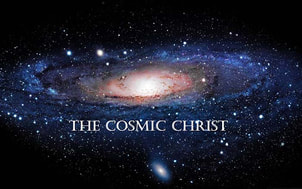
Heaven is not above us. It is not a place. Beyond us, stretching light years into the future is a universe expanding it would seem infinitely. God’s work, so far from being finished on the sixth day, has hardly begun, even in metaphorical terms. Our planet is a mere speck, not even at the centre of our own galaxy and universe, leave alone of universes yet to be discovered. The pictures faithfully sent back to our planet over the last thirty years by the Hubble telescope, and soon to be supplanted in 2021 by even finer images from the James Webb space telescope, give us images of awe and wonder every day. We, little earthlings, walk about, our feet on the earth, our heads sticking out into space like so many pins on a pin cushion. Everything we ever thought we knew has changed. When on July 20 1969 my parents woke me up from sleep, aged 11, to witness that first moonwalk, they knew this was something I needed to see because it would change everything and it has. And we need a larger idea of Christ.
When God speaks, we believe there is the Christ the second person of the Trinity. So, Christ was first incarnate at the Big Bang, 13.8billion light years ago. This incarnation beyond time, is ongoing infinitely in our infinitely expanding universe. There was never a completed and then fallen creation, with humanity at its apex. Our universe is infinitely complex and dynamic, and fresh knowledge invites us to a fresh humility about our place in that loving and creative movement of God. While the understanding of Christ as the Light of the world resonates with the 100,000 or so years of human history on this planet, we now know that far more of our universe is composed of dark matter and dark energy. We need to be able to say also, for example that Christ is the darkness of the universe. This Christ is far larger than we used to think.
Our universe, according to some of the most recent pictures, is made up of at least 265,000 galaxies, many of them much larger than our own Milky Way. To realise that on that vast scale, we humans are still important to God, inspires wonder, humility, love and desire, for all that God has for us and the whole creation yet to become. We have understood, specks of stardust that we are, that in the life, death and resurrection of Jesus Christ, God has provided an icon, a window onto the whole constantly transformative process of the evolving universe. For, as the writer to the Colossians puts it, ‘in him all the fullness of God was pleased to dwell, and through him God was pleased to reconcile to himself all things, whether on earth or in heaven.’ Our Christian understanding of this must evolve, enlarge or die.
Becoming who we truly are, beloved of God from before eternity, into the future – rather than attempting a return to a non-existent Eden – shapes our vocation as Christians and our devotion to a larger Christ for a new age. This inspires hope. As science opens our eyes to a larger universe, so too it inspires us to see Christ in one another and in all creation. As the universe expands, so may our understanding of Christ expand and may our love expand, one for another and for this astonishing cosmic creation of which we are a part. In the name of a larger Christ. Amen.
Penny Jones, for 'Cosmos Sunday', 15 September 2019
 RSS Feed
RSS Feed